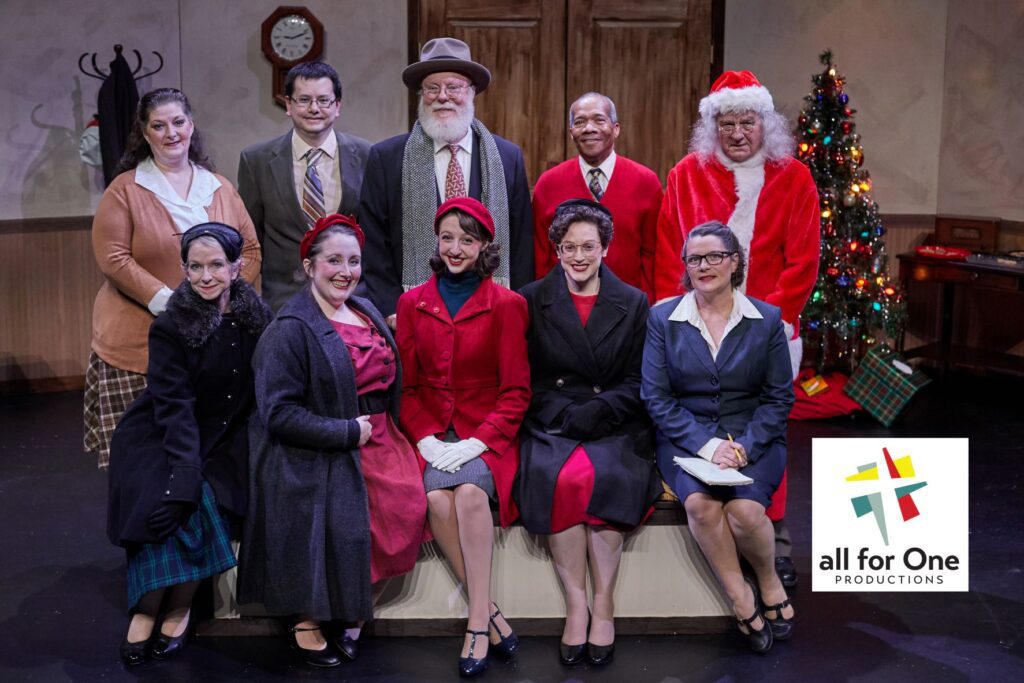Reflections on The Christmas Express

As the artistic director of a faith-driven theater, I often find myself walking a theological tightrope when choosing plays for our company. We are always looking for shows with a broad appeal, strong entertainment value, and technical requirements within our means. Beyond that, we are committed to material which has depth–either historical or philosophical–and which is consistent with our Christian worldview.
A play like our current one, The Christmas Express, seems to fit all these criteria fairly well, though I have questioned both the depth and the worldview a bit. As I mentioned in the dramaturgy, we were pleased that two actual carols were called for. And Hilda’s character in particular has a nice arc, as she comes to terms with an old grief.
The character of Leo Tannenbaum is not overtly explained, but alert audience members probably realize that he enters immediately after the word ‘angel’ in Maggie’s description of a decorated Christmas tree. When Leo is around, the light onstage is warmer and brighter, and things just ‘work’ better: Satch’s watch, the radio, the carollers’ singing.
One of our actors pointed out the emphasis on time, which seems to have stopped in Holly. (It would have been wonderful if we’d found a period clock which we could make “run” at the end of the show, but alas! It was not feasible.) Leo’s comment to Satch that “you only get out of something what you put into it” is also pertinent. The citizens of Holly have lost hope, have all gotten “stuck” in time, because they’ve stopped putting any effort into the health and growth of their town. Leo gives them back that hope, and at the end of the play they are in a position to move forward with a new lease on life.
But Leo’s speech late in the play, which “explains” what he means by “The Christmas Express” has irked me as being vague and secular to the point of being meaningless. However, our audiences have responded very positively to both the cast and the script, and so I am listening hard to these lines and thinking about what they might mean to various people.
“When you hear a sound and you just know it means good news, I call it the Christmas Express,” says Leo, “because it’s the expression of the feeling of Christmas.” Well, OK. It’s a bit of a stretch, but I see what he means. And Good News is certainly an integral part of Christmas for me, as a follower of Christ. The Good News of Christmas, that God has come to dwell with His creation, is the best news possible. I believe that most of the joy and good will we still feel at this time of year is a remnant, whether acknowledged or not, of that great Good News of the gospel story.
So whether one thinks of the sacred meaning of Christmas or not, the Christmas Express exists. If God exists, then He is present regardless of people’s belief in Him. He cannot be God and be contingent.
Whatever the Christmas Express means to you personally, I hope you will take time this season to reflect on the reason for all our songs and sentiments. Joy, Peace, Love, Hope–all of these ideas are real, and they are all found in one place: the God who came to live with us, who entered the world as an infant in a manger. Glory to God in the highest! Joy to the World!
–Lauren Nichols, afO Artistic Director
Purchase tickets for the final weekend HERE!
